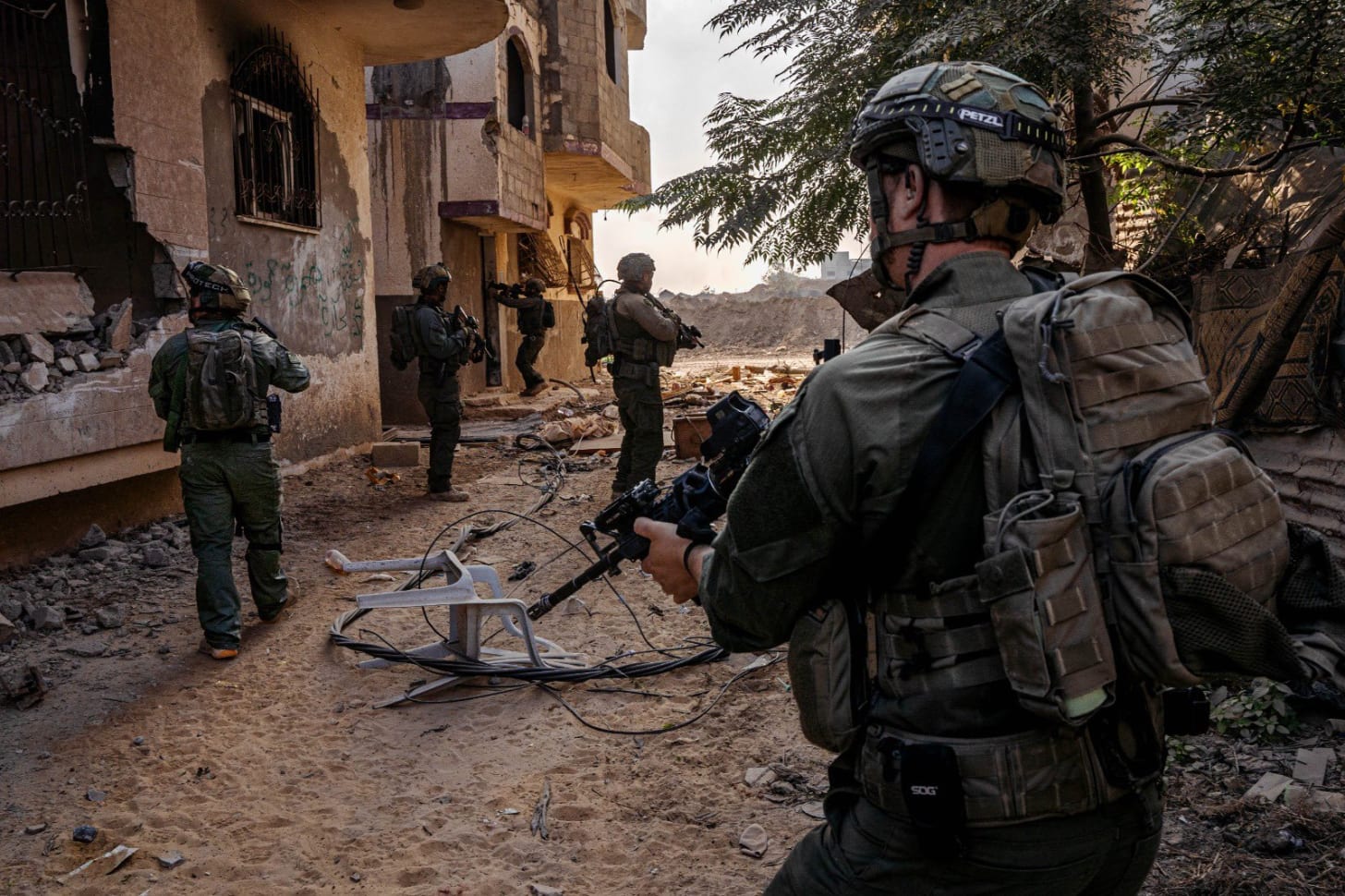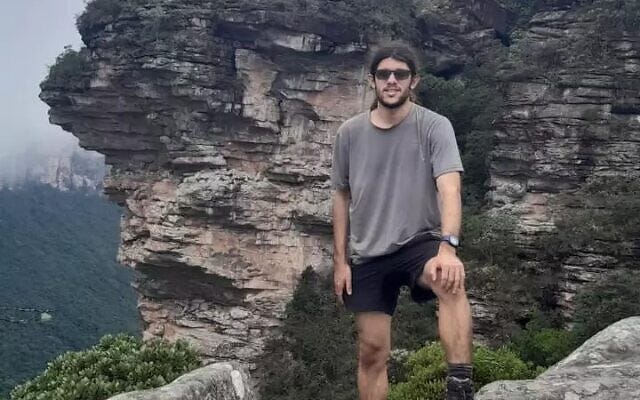DAY 89 OF THE GAZA WAR: Tension High on Lebanese Border, Terror in Iran, Supreme Court Modifies Basic Law
Tel Aviv Diary January 3, 2023
It’s the day after the assassination of Saleh al-Arouri. Israel remains on edge, anticipating a Hezbollah response. Nasrallah delivered a lengthy speech earlier, primarily commemorating General Qassem Soleimani (Islamic Revolutionary Guard Corps, Commander of the Quds Force, assassinated by the U.S. in 2020). An hour or more into his speech, Nasrallah brought up yesterday's incident regarding al-Arouri. Nasrallah stated that Hezbollah will not remain silent regarding what happened yesterday, and does not fear the prospect of a military confrontation.
Nasrallah, however, did suggest that Hezbollah's response would be restrained, and is not expected to provoke a full-scale war. The prevailing opinion in Israel is that Hezbollah might carry out some form of retaliation, but is unlikely to escalate into a widespread conflict. Hezbollah could potentially allow Hamas greater latitude to launch attacks on Israel from Lebanon, although this might prove challenging — in part because the elimination of al-Arouri reportedly also resulted in the deaths of all Hamas’s entire military command in Lebanon.
There are concerns that Hezbollah, or Iran, might retaliate outside of Israel — as they did with the attack on the Jewish Community Center in Argentina, in 1994. In fact, it was reported yesterday that several individuals were arrested, while attempting to enter Argentina, on suspicion of planning a terrorist attack there.
ON THE NORTHERN BORDER
The Northern border was relatively quiet today, with only three anti-tank missiles fired at communities along the border, as well as a rocket attack on Har Dov. Hezbollah announced the deaths of additional members, raising the count of their fighters killed to 143. IDF Chief of Staff, Herzi Halevi inspected the Northern border, emphasizing Israel's readiness for any situation.
The overall impact of nearly three months of border conflict has been significant. Reports indicate that 130 houses in Metulah and 50 in Kiryat Shmonah have been damaged by missiles. Residents from these areas continue to be dispersed throughout Israel. In contrast to residents from the Gaza region, who were evacuated to specific locations to maintain a semblance of community life, those in the North were not as fortunate. Kiryat Shmonah residents are spread across over 40 hotels throughout the country. As of now, the government has extended the stay of residents from the confrontation line until the end of February. However, there is skepticism that residents of the North will be able to return home by then.
TERROR IN IRAN
A terrorist attack, at the Teheran cemetery where Qasem Soleimani is buried, resulted in over 210 casualties from two simultaneous explosions. The Iranian government immediately blamed the attack on Israel, which is a typical response. However, there is absolutely no evidence to suggest that Israel was involved. The U.S. State Department issued a statement denying any involvement by the United States or Israel.
Reported Israeli strikes in Iran have always been highly targeted, and never result in mass casualties or acts of terror, unlike this attack which clearly was both. It is probable that an Iranian opposition group executed the assault, a possibility the Iranian government is unlikely to acknowledge. While they have vowed retaliation, their capabilities in this regard are limited.
BACK TO GAZA …
Meanwhile, fighting continues in Gaza, primarily in Khan Younis and the camps of Central Gaza. The IDF (Israel Defense Forces) has revealed they are engaged in tunnel warfare beneath Khan Younis, using new secret weapons and tactics. This careful approach contributes to the slower pace of military action in that area.
In the central camps, soldiers have discovered equipment used for rocket manufacturing, which they are destroying. Efforts to locate and eliminate underground tunnels in the northern part of Gaza are ongoing. Notably, the tunnel system beneath Shifa Hospital was demolished without damaging the hospital itself. The U.S. Department of Defense confirmed Hamas had used Shifa Hospital as a command center and for holding hostages.
IDF LOSES ANOTHER SOLDIER
The IDF announced the death of another soldier in Northern Gaza.
ANOTHER TRAGEDY: SAHAR BARUCH
The Army also disclosed that Hamas-held hostage Sahar Baruch was killed during an attempt to rescue him on December 9. However, it remains unclear whether Baruch was killed by Hamas, or by Israeli soldiers during the attempted rescue.
Baruch’s death has heightened concerns among hostage families, prompting them to apply even greater pressure on the government to act to reach an agreement. Talks for the release of additional hostages were already stalled before the recent assassination. Currently, Hamas has declared that all talks regarding the release of hostages are on hold, but it is hoped that this will only be a temporary delay.
HOUTHIS
The Houthis claimed responsibility for an attack on a ship believed to be headed to Israel. The US Navy confirmed that the Houthis did indeed launch a missile at a ship en route to Israel, but failed to cause any damage. Reports suggest that both the US and Great Britain have issued a final warning to the Houthis, cautioning them to cease their attacks on shipping routes, or risk facing proactive measures.
THE SUPREME COURT
In another significant development, the Supreme Court issued a landmark decision, modifying a new Basic Law. This case involved a law that would restrict the circumstances under which the Prime Minister could be deemed unfit for office. Under the previous law, the Attorney General could make such a determination, a concern for Netanyahu due to his ongoing trial. Interestingly, after the law's passage, Netanyahu expressed his intention to involve himself in judicial reform, believing that the Attorney General could no longer enforce the agreement.
The revised Recusal law now allows the Prime Minister to be temporarily removed only in cases of physical illness. Critics argued that the change was tailored to Netanyahu's needs, labeling this new Basic Law a “personal law.” The Supreme Court ruled that the Recusal law would only take effect after the next election, preventing it from being perceived as designed for a specific individual, in this case, Netanyahu.
Two days after the fact, it's essential to reflect on the Supreme Court’s earlier decision on the Reasonable Clause. The most significant aspect of the High Court’s ruling was its clear affirmation of its authority to review Basic Laws. The Court expressed concern about the dilution of the meaning of Basic Laws, given the large number of Basic Laws enacted in recent years.
The Supreme Court further emphasized that the Knesset's legislative powers derive from the Declaration of Independence, and that any Basic Law which contradicts that document could be subject to judicial review and nullification. As a result of the Supreme Court’s recent rulings, the architects of the Knesset’s Judicial reform plan, aiming to weaken the judiciary's power, inadvertently galvanized Israel's “liberal” majority, ultimately strengthening the courts and preserving their independence.
BUSINESS
Aqua Security, an Israeli cloud security startup, has raised $60 million in funding, led by new investor Evolution Equity Partners and involving existing investors Insight Partners, Lightspeed, and Stepstone. This funding, viewed as an extension of their previous Series-E round from 2021, maintains the company's valuation at around a billion dollars. This achievement is notable in the current uncertain global tech landscape and the Israeli tech sector.






